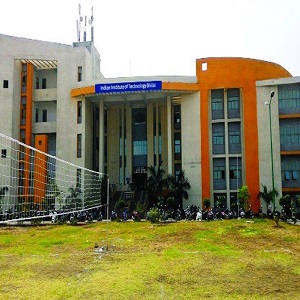IIT Bhilai Researchers Create Revolutionary 'Smart Insulin' for Improved Diabetes Treatment
 Scientists at the Indian Institute of Technology (IIT) Bhilai, in partnership with academics from Shiv Nadar University, have successfully produced a remarkable innovation known as "smart insulin."
Scientists at the Indian Institute of Technology (IIT) Bhilai, in partnership with academics from Shiv Nadar University, have successfully produced a remarkable innovation known as "smart insulin."
This ground-breaking composition developed from bio-abundant components has shown enormous promise in efficiently controlling diabetes. According to an IIT Bhilai press release, the work, directed by Dr. Suchetan Pal of the Department of Chemistry, has enormous promise for dramatically enhancing the quality of life for people living with diabetes.
Individuals with type 1 and advanced-stage type 2 diabetes currently rely on regular insulin injections to control their blood glucose levels. This traditional procedure, however, is not only uncomfortable and painful, but it also increases the danger of hypoglycemia, a potentially fatal illness characterised by low blood sugar levels.
In contrast to ordinary insulin, which has a 12-hour duration, the newly created smart insulin material has a prolonged release time lasting up to two days. Before moving further with human studies, promising benefits were reported in diabetic rat research. If the human trials are effective, patients may see a decrease in insulin injection frequency, resulting in a better overall quality of life.
This amazing formulation will be studied further for its potential application in the development of low-cost, long-acting insulin, and it may even pave the way for the development of an artificial pancreas. The team's innovative research was published in the prestigious journal ACS Applied Materials and Interfaces, garnering international attention for its potential to alter diabetes treatment.
IIT Bhilai, the HDFC-CSR grant, the Department of Science and Technology (DST), and the Department of Biotechnology (DBT) Innovative Young Biotechnologist Award have all contributed to the study effort.
With diabetes becoming a rising worldwide health hazard, this advancement provides hope for millions of people living with the disease, offering a potential breakthrough in diabetes management and contributing to a better future.

